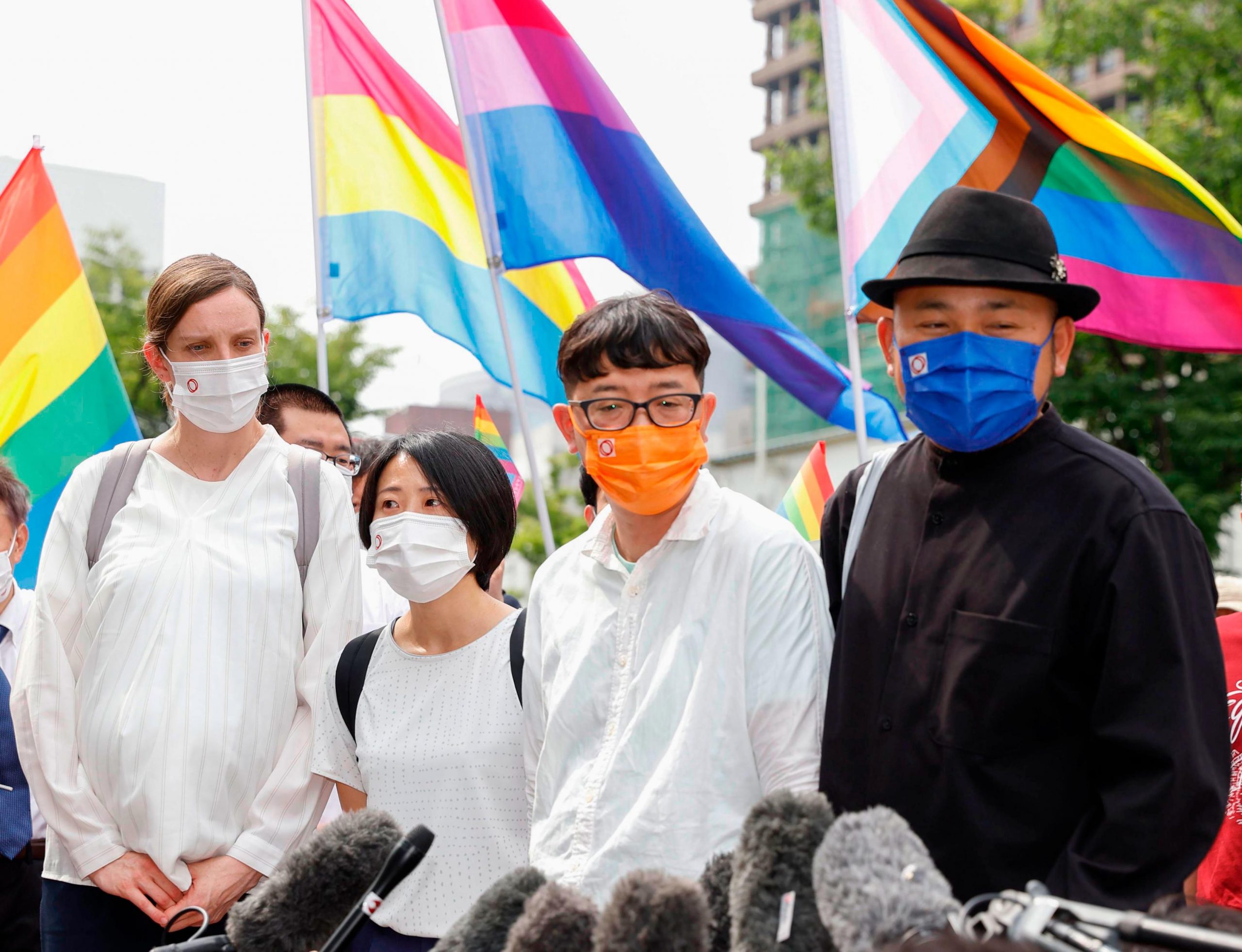Japanese Court Agrees That The Ban On The Same-Sex Marriage Was Constitutional
The Japanese court in Osaka ruled that the ban on same-gender marriage was not unconstitutional as Japan remains the only nation of the G7 members not officially to accept same-sex marriage.
The decision shatters activists’ hopes of putting tension on central authorities to tackle the issue after an appeals court in the city of Sapporo in March 2021 ruled based on a case denying marriage to a same-sex couple was not constitutional.

Three identical couples, two males and one female, brought the case to the district court of Osaka. This is the second time in Japan that a case regarding this matter was heard in court.
In addition to denying their contention that their inability to get married was unlawful, the court also rejected their request of 1 million yen ($7,400) for damages per couple.
“I really wonder whether the legal system of this country really works,” said plaintiff Machi Sakata who got married to a U.S.-citizen spouse in America. They are expecting their first child in August.
“I believe there’s a possibility that this ruling might really corner us,” Sakata said.
The Japanese Constitution defines marriage built-in “the co-consent of each of the sexes.” But the advent of rights to partnership for couples of the same gender in Tokyo this week, along with the growing support for them in polls, has been a source of optimism for lawyers and activists for the Osaka lawsuit.
The Osaka court ruled the definition of marriage as exclusively between opposite genders, and there was not enough debate on same-sex marriages in Japanese society.
“We stressed during this trial that we wanted the same-sex couples to be able to access the same services as regular couples,” said lawyer Akiyoshi Miwa, who added that they would contest.
Japanese laws are considered relatively liberal in specific areas according to Asian standards; however, only Taiwan has legalized the same-day issuance of a passport across the continent.
In Japan’s current regulations, same-sex couples are not permitted to marry legally, and they are not able to inherit the assets of one another -like a home they might have shared and have no parental rights to each other’s children.
While the partnership certificates issued by certain municipalities allow couples of the same gender to rent a home together and enjoy the right to visit hospitals, however, they do not grant the same legal rights as heterosexual couples.
The previous week, Tokyo agreed to recognize same-sex unions, meaning almost half of Japan’s municipalities recognize same-sex marriages.
While Prime Minister Fumio Kishida has stated that the issue must be considered with care, the ruling Liberal Democratic Party has disclosed that it has no plans to study the issue or even propose legislation, although certain senior members of the party support change.
A pending trial in Tokyo will maintain the debate in public about the issue, especially in the capital city, where an opinion poll conducted by the local government this year revealed that around 70% of the population supported marriage between a couple of the same gender.
Legalizing marriage between same-sex couples would have a wide-ranging impact economically and socially, activists claim, and could aid in attracting foreign companies to the world’s third-largest economy.
“International companies do not want to invest in a place which isn’t LGBT-friendly,” said Masa Yanagisawa, the head of prime services at Goldman Sachs.
Also read about Japanese Fans Give PewDiePie A Custom Toyota For Free
